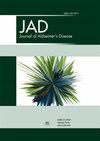从分段睡眠到单相睡眠的历史性转变能否解释现代阿尔茨海默病和相关痴呆症的肆虐?
IF 3.4
3区 医学
Q2 NEUROSCIENCES
引用次数: 0
摘要
芬奇和伯斯汀在文章中探讨了阿尔茨海默病和相关痴呆症(ADRD)可能主要是现代现象的假设。通过对古典希腊语和拉丁语文献的回顾,他们发现与 ADRD 类似的病症极少被提及,这表明严重认知功能衰退在历史上是罕见的。相反,古代文献侧重于衰老的生理方面,即使提到认知变化,也与现代痴呆症并不相似。芬奇和伯斯汀进一步扩展了他们的分析,将其与玻利维亚的齐玛尼人相提并论,齐玛尼人以痴呆症和心血管疾病发病率低而闻名,这归因于饮食和体育锻炼等生活方式因素。通过将历史上从分段睡眠过渡到单相睡眠的睡眠模式与Tsimane社区的睡眠模式进行比较,我们丰富了Finch和Burstein的研究,强调在理解当今社会ADRD的发病机制时,需要考虑包括睡眠在内的一系列不同因素。本文章由计算机程序翻译,如有差异,请以英文原文为准。
Could the Historical Transition from Segmented to Monophasic Sleep Explain the Modern Insurgence of Alzheimer’s Disease and Related Dementias?
In their article, Finch and Burstein explore the hypothesis that Alzheimer’s disease and related dementias (ADRD) may predominantly be phenomena of the modern era. Through a review of classical Greek and Latin literature, they found minimal reference to conditions akin to ADRD, suggesting a historical rarity of severe cognitive decline. Instead, ancient texts focused on physical aspects of aging, with cognitive changes, when noted, not resembling modern-day dementia. Finch and Burstein further extend their analysis by drawing parallels with the Tsimane people of Bolivia, known for their low prevalence of dementia and cardiovascular diseases, attributed to lifestyle factors such as diet and physical activity. By comparing historical sleep patterns transitioning from segmented to monophasic sleep with those of the Tsimane community, we enriched Finch and Burstein’s research, highlighting the need to take into account a range of diverse factors, including sleep, in understanding the etiopathogenesis of ADRD in today’s society.
求助全文
通过发布文献求助,成功后即可免费获取论文全文。
去求助
来源期刊

Journal of Alzheimer's Disease
医学-神经科学
CiteScore
6.40
自引率
7.50%
发文量
1327
审稿时长
2 months
期刊介绍:
The Journal of Alzheimer''s Disease (JAD) is an international multidisciplinary journal to facilitate progress in understanding the etiology, pathogenesis, epidemiology, genetics, behavior, treatment and psychology of Alzheimer''s disease. The journal publishes research reports, reviews, short communications, hypotheses, ethics reviews, book reviews, and letters-to-the-editor. The journal is dedicated to providing an open forum for original research that will expedite our fundamental understanding of Alzheimer''s disease.
 求助内容:
求助内容: 应助结果提醒方式:
应助结果提醒方式:


